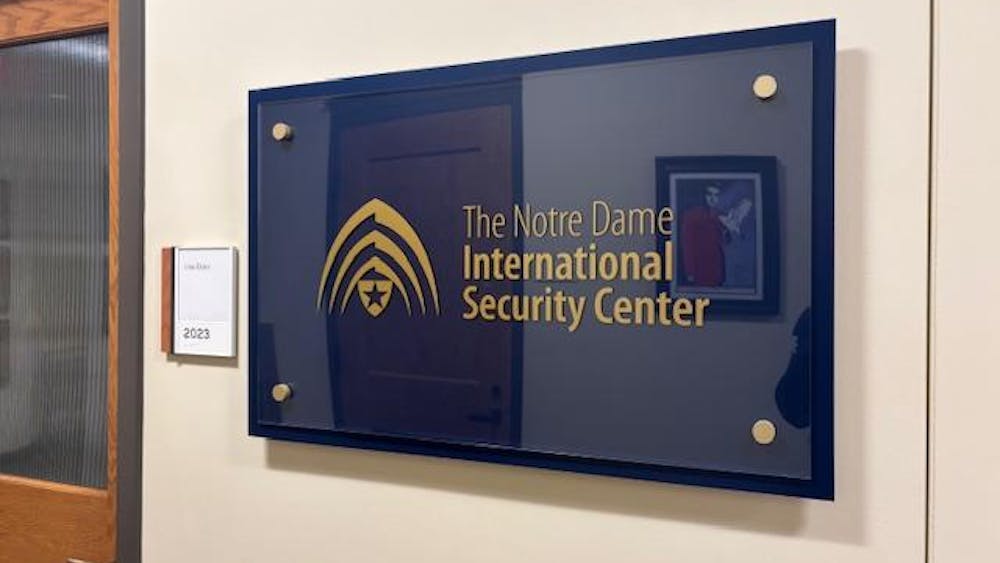
Harvard professor Steven Levitsky spoke on the issues facing American democracy in McKenna Hall Monday.
Monday evening in McKenna Hall, Harvard political science professor Steven Levitsky discussed past, current and future threats to American democracy in his keynote address for this year’s Notre Dame Forum on "The Future of Democracy."
One of the primary topics discussed was the ever diversifying democracy in America. Levitsky said the Republican party is struggling to deal with a changing electorate. Because their base has long been filled with white, Christian Americans, Levitsky said the party has faced the problems of elections and loss of dominance. He said the latter seemed to cause a major challenge for the Republicans.
“When your group is on top of the hierarchy, challenges to that hierarchy can feel threatening. Losing one's dominant social status can generate feelings of loss, of resentment,” he explained. “It can feel like an existential threat.”
Levitsky said former President Donald Trump was able to gain a coalition of voters through this fear. According to this theory, many Republicans have been pushed to extremism because they feel as though they are losing their country.
Levitsky also explained the role the various counter-majoritarian institutions within the United States play in our democracy — these include the Bill of Rights, an independent judiciary with the capability to review legislation and a high bar to reform the Constitution.
However, Levitsky also said the Founders incorporated an excess amount of these institutions, such as the Electoral College; the Senate, which is not representative of population; the ability to block legislation through filibusters and the lifetime appointment of Supreme Court Justices. Because of this, he claimed, the Founder’s institutions do not perfectly align with the ideals of democratic governments.
“The framers of the US Constitution were very smart folks, but they weren't out there trying to design the perfect Republic,” he said. “They were trying to hold the Union together and prevent a dissent in the Civil War or foreign military intervention. And to do that, to prevent a breakup of the union and a descent into violence, they realized very quickly that they had to compromise.”
Levitsky said he feels the upcoming 2024 presidential election will have a profound impact on the future of American democracy.
When analyzing Trump, Levitsky found he matched all four key indicators of authoritarian behavior: rejection of democratic norms, denial of legitimacy of political opponents, toleration or encouragement of violence and readiness to curtail civil liberty of opponents including media. Both in his presentation and in his discussion, Levitsky emphasized how important it is for other Republicans to speak out against Trump.
“Nearly all of them say they will back Trump if he's the nominee in 2024, even if he's convicted of trying to overturn an election,” he said. “It does not have to be this way.”
Questions were asked by the moderator, political science professor Christina Wolbrecht and the audience. The questions addressed a plethora of topics such as the importance of the military, possible limitations to reforms, difficulty of voting in the U.S., excessive majoritarianism and international issues. Special attention was also given to how Levitsky perceived the threat of another civil war. He said he does not think there is a real threat of civil war, however, he noted the possibility of increased violence and terrorism in the future.
“It's not unreasonable to imagine if we slide back into crisis, that there will be a fair level of street violence, there already was some in 2020,” Levitsky said. “There could be political assassination attempts and terrorist attacks and the fact that so many Americans, in particular radicalized Americans own guns, doesn't help.”
Concluding his remarks, Levitsky emphasized the need for reform to its counter-majoritarian institutions.
“We need to democratize American democracy,” he said.









